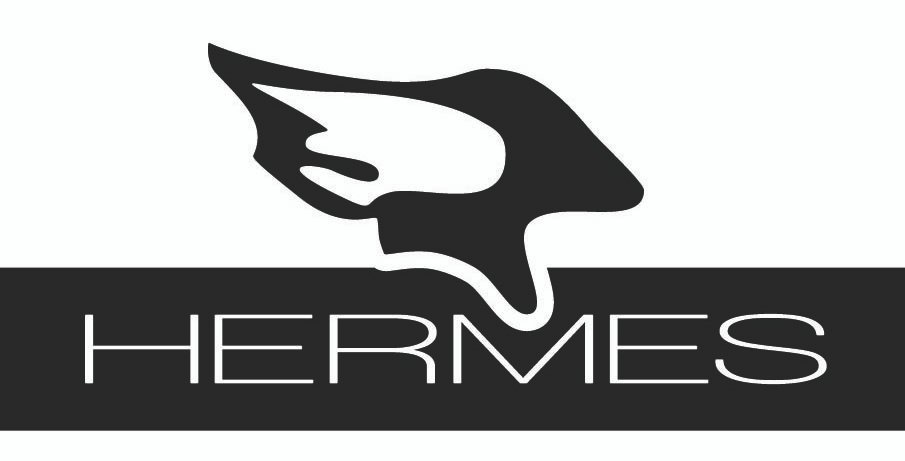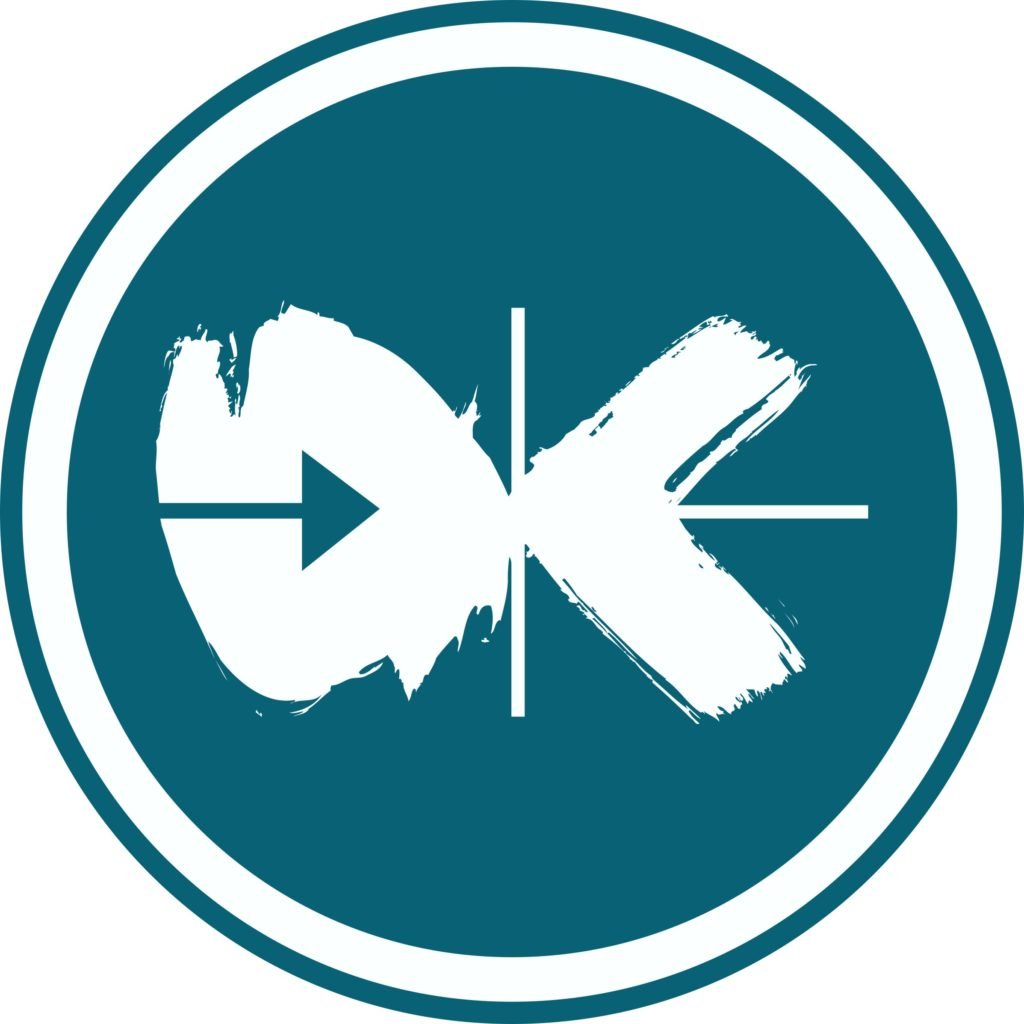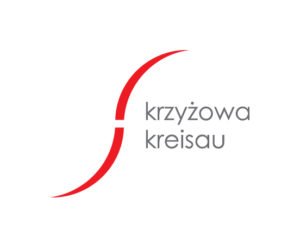PARTNERS
Kreisau Initiative
The Kreisau Initiative eV was founded in 1989 – even before the fall of the Wall – as a citizens’ initiative by East and West Berliners to support the establishment and work of an international meeting place in Kreisau / Krzyżowa (Poland) in an ideal and material way.
The district of Kreisau, where the Kreisau resistance group met in 1942/43 to develop visions and concrete plans for a peaceful future for Europe, is a place that is particularly suitable for communication between Western and Eastern Europeans.
The Kreisau Initiative aims to initiate and support activities in and around Kreisau / Krzyżowa that aim at a peaceful and mutually respectful coexistence of social groups and individuals.
The Kreisau initiative organizes youth meetings, workshops, seminars and conferences for different target groups. Our projects are international and inclusive. The participants come from all over the world, belong to different generations and have different educational backgrounds. Our projects focus on three areas:
– inclusion
– Contemporary history and human rights
– Social-ecological transformation
anne frank house
The Anne Frank House is an independent, non-profit organisation dedicated to the preservation of the place where Anne Frank went into hiding during the Second World War, and to bringing the life story of Anne Frank to the attention of as many people as possible worldwide with the aim of raising awareness of the dangers of antisemitism, racism and discrimination and the importance of freedom, equal rights and democracy.
The Anne Frank House organisation was established on 3 May 1957 in cooperation with Otto Frank, Anne Frank’s father, with the key aims of preserving Anne Frank’s hiding place and spreading the message of her life and ideals.
International Association for Intercultural Education
The mission of the IAIE is best described in terms of its main aims and means. The main aims of the IAIE include:
– To examine the implications of the societal contexts of education and the relationship between society, nation state and the international contexts and the situation of individuals, groups and minorities within them.
– To contribute to the development and implementation of intercultural education and issues of education in multicultural societies.
– To promote the exchange of information, knowledge and materials about all relevant issues concerning education in multicultural societies amongst teachers, teacher trainers, and professionals working in curriculum development, research and educational policy.
– To initiate, react and respond to activities in the field of education of international and national organizations.
The means include:
– By preparing six issues a year of the international journal Intercultural Education, published by Routledge
– By supporting, sponsoring and organizing, seminars, workshops and conferences on issues of education in a multicultural society.
– By encouraging international cooperation in curriculum and materials development in the field.
– By assisting the development of appropriate initial and in-service teacher education.
– By encouraging cooperation with other organizations which have similar or complementary aims as the IAIE.
– By disseminating a newsletter 4 times a year with information about the field for the membership
Open Communication
Open Communication is the largest debating network in Serbia centralized in Belgrade. It was founded in 1997 on the basis of enthusiasm of several professors and students of the University of Belgrade who were willing to improve the culture of dialogue and tolerance and provoke critical thinking in a conservative society like Serbian was then. Twenty years which followed brought a lot of challenges and obstacles, but the team continued to grow and advocate for the established values.
Until today, the Open Communication has gained numerous commendable achievements through different fields of activities. The list of these achievements includes:
– A sustainability of debate clubs founded in cooperation with 6 faculties and over 10 high schools in Belgrade, as well as foundation of debate clubs in Novi Pazar and Novi Sad;
– Prestigious scores at international debate tournaments, including current titles of European and World’s champions in different debate categories;
– Hosting the European Universities Debating Championship 2012 which gathered more than 600 participants from all over Europe
– Over 10 years organizing the “Summer Debate Academy”
– Over 10 years organizing “Belgrade Open”, traditional international debate tournament
– Successful implementation of numerous national and international projects such as: “Model International Criminal Court for Western Balkan” (MICC WeB), “Open University”, “Populistic Vocabulary of the Demagogy”, “European Debate School” and “Historija, Istorija, Povijest – Lessons for Today”.
The organization offers separated courses for beginners, young competitors and experts in debate, led by experienced trainers. The courses are being attended by more than 700 participants every year. In 2016 Open Communication has made a significant step towards the institutionalization of debate through a series of seminars intended for teachers and professors. These seminars, based on promotion of debate as a teaching method, have been accredited by the Ministry of Education, Science and Technological Development.
mreža zapadnog balkana
Mreža Zapadnog Balkana – Western Balkans Network (WEB) is a non-governmental organization, founded as result of the successful regional project Model International Criminal Court Western Balkans – MICC WeB. It brings together individuals, interest groups, professional associations and organizations that seek to nurture regional cooperation and reconciliation, by organizing joint workshops, meetings, roundtables, seminars and study trips.
Our vision is that of a peaceful region, in which recent history, nationalist conflicts, divisive rhetoric and extremist views are discussed through dialogue and debate, building long lasting bridges, friendships and networks in the process. Since the successor countries of former Yugoslavia share so many of the problems and challenges in the present, it is our vision that WEB’s activities will bring together disenfranchised interest groups (youth, women, educators, professional associations, labor unions, social justice activists and minority groups), providing an opportunity for exchange of experiences, and building their capacity for advocacy and problem solving in their communities.
Youth Educational Forum
Youth Educational Forum (YEF) is a youth community creating space for debate, free expression and youth organizing, encouraging activism, protecting and advancing youth rights and policies. YEF achieves its goals through servicing non-formal education, discussion, cooperation and by motivating and supporting young people. YEF believes that young people in Macedonia should be significantly included in decision-making processes and conducting policies, and should be leaders in promotion of well-argued discussion and respecting human rights and liberties.
The organization was founded as Association of Citizens “Debaters” in June, 1999. A group of young people were founders and eager to place Macedonia as a relevant factor and part of international debate society. In that period YEF was the only organization that was implementing debate activities in the country, and in the same time it became member of the International Debate Education Association (IDEA). In 2000 the organization was joined by young people conducting the Street Law program, and the two programs merged and renamed the organization to its current name – Youth Educational Forum.
The organization was based on the premise that young people with skills for critical thinking and social awareness have a duty in the society. High school students were the main target group which should have the opportunity to be involved in non-formal education where they can increase their knowledge on different debate motions, create solid argumentation and be engaged in the society with positive attitude towards human rights, integration and solidarity.
The current program structure of YEF is with four programs: [1] Debate Program, [2] Street Law Program, [3] Research, Analyses and Youth and Education Policymaking Program and [4] Youth Activism Program. In 2008, the organization started a new project called Local Youth initiative, a key moment for the expansion of the organization which worked in several cities in Macedonia, and with which youth clubs were established in 14 cities. Even though YEF in the past has worked with different cities and local municipalities, this was for the first time an organized and systematic national network was built.
BETA Europe
BETA Europe, AISBL is a politically independent and non-profit association, seated in Brussels, with national chapters in 20 countries. The name stands for Bringing Europeans Together Association because this is their mission: to strengthen European society by encouraging democratic processes and consciousness about the plurality of European identities, both on a national and international level.
The goal of the organisation is to actively support such political simulations as the Model European Union (MEU), events which allow young people to engage in politics, discover the founding principles behind Europe through a first hand experience of the democratic process.
Founded in Germany in 2008., BETA has now grown to have 20 national organisations, 21 partner organisations more than 500 individual members, involving more than 2500 youth of 33 nationalities and supporting over 25 events worldwide, from Europe to Africa, Middle East to Central Asia.
BETA is the growing managerial infrastructure behind MEU events driven by maximum professionalism of its members to promote learning, supporting and inspiring young European generations, in the respect of the diversities and under the sign of tolerance and inclusiveness.
The Krzyzowa Foundation
The Krzyzowa Foundation for Mutual Understanding in Europe with its International Youth Meeting Center, Memorial Site and European Academy is a politically independent, non-profit organization.
The Foundation has more than 25 years of experience in the field of non-formal education. Because of the history of the Krzyzowa estate which the foundation calls home (the Kreisau Circle, a German resistance group met there three times in 1942/43), it has high expertise especially in political and historical non-formal education projects. Topics like resistance, international relations, civil society development and Europe are central to the work of the foundation. The Foundation also has a lot of experience in the implementation of various art and sustainability projects. Next to projects for young people such as youth exchanges or workshops, the foundation organizes training for teachers and multiplier events as well as seminars and conferences.













